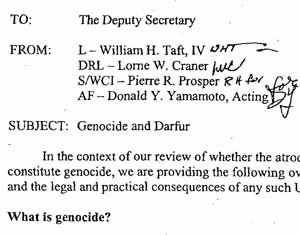Mauritius: Marxism, ecology and the contribution of John Bellamy Foster

By Lalit de Klas
June 2011 – Lalit [the revolutionary socialist party in Mauritius] sees the natural universe, whether it be the air above us, the sea around us or the Earth we walk upon, and all that lives upon it, and even outer space, as being our collective heritage as human beings. We are part of it, and also the guardians of it. This natural universe, our Mother Earth, is now endangered.
Our planet is already suffering irreversible damage, damage so serious as to threaten the very existence of the totality of human civilisation in all its varied forms. We humans have the minds to know this.
The threat is posed by our own human-made forms of agricultural and industrial “development”. This is serious because it is our way of survival that has become this destructiveness.
The main damage has been done in the past 250 years. Increasingly serious damage is being done. And yet most of us are oblivious to it, and once we know, we are “helpless”. We sit and watch a potential meltdown of a nuclear plant in Japan, as the capitalists who run it admit their own helplessness.
Martin Hart-Landsberg: The troubled US economy means a shaky world economy

By Martin Hart-Landsberg
August 15, 2011 -- Reports from the Economic Front, posted at Links International Journal of Socialist Renewal with Martin Hart-Landsberg's permission -- The US economy is in trouble and that means trouble for the world economy. According to the United Nations Conference on Trade and Development’s Trade and Development Report, 2010, “Buoyant consumer demand in the United States was the main driver of global economic growth for many years in the run-up to the current global economic crisis.”
Before the crisis, US household consumption accounted for approximately 16 per cent of total global output, with imports comprising a significant share and playing a critical role in supporting growth in other countries. In fact, “as a result of global production sharing, United States consumer spending increas[ed] global economic activities in many indirect ways as well (e.g. business investments in countries such as Germany and Japan to produce machinery for export to China and its use there for the manufacture of exports to the United States)”.
Bolivia: How Jeffrey Webber's 'From Rebellion to Reform in Bolivia' turns reality on its head
Review by Federico Fuentes
Cuba: Changes go deep -- democratic reforms

Cubans vote for members of their local Assembly of People's Power.
[For more analysis and discussion on the changes in Cuba, click HERE.]
By José Alejandro Rodríguez, Havana
August 17, 2011 -- Progreso Weekly -- Apart from some exceptions, the powerful international media has ignored a recent Cuban parliamentary bill that would deepen democracy on the island. The reason is obvious: the news is not convenient. The initiative is made within socialist institutionalism, not in terms of the “transition” whose staging is highly anticipated and promoted by certain hegemonic interests in this world.
The idea is to give the green light to an experiment in the new provinces of Mayabeque and Artemisa, which, if they bear fruit, would be extended to the whole country through constitutional reform: the reassignment of the duties of the chairperson of the local Assembly of People's Power and chairperson of the assembly's territorial administrative board to different people, in each municipality and province.
Mike Marqusee: Riots, reason and resistance

By Mike Marqusee
Victims of Agent Orange/dioxin: 'Agent Orange in Vietnam was a crime against humanity'
Appeal of the Second International Conference of Victims of Agent Orange/Dioxin
Hanoi, Socialist Republic of Vietnam
Marxism has an ecological heart

Credit: Galen Johnson/Canadian Dimension.

